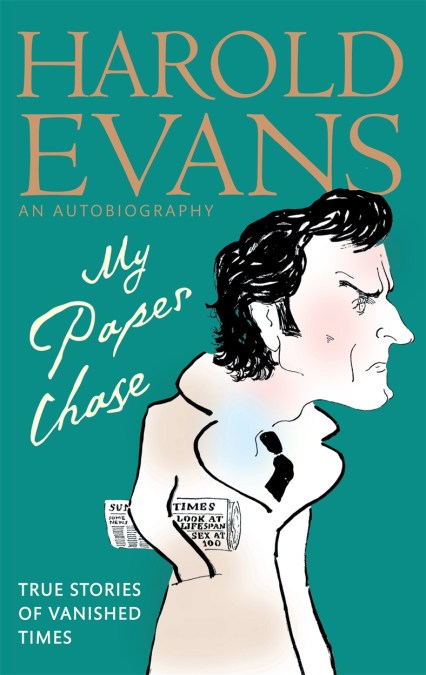From a wartime beach in Wales to the gleaming skyscrapers of twenty-first-century Manhattan, the extraordinary career of Fleet Street legend Harold Evans has spanned five decades of tumultuous social, political and creative change. Just how did a working class Lancashire boy, who failed the eleven-plus, rise to a position where he could so effectively give voice to the unheard?
Born in the bleak years between the wars in the sprawl of Greater Manchester into a thrifty, diligent and loving family, Evans inherited only the privilege of his parents’ example. Theirs was a work ethic that led Evans through night school classes, national service and a passionate commitment to regional life, and, finally, to his unassailably successful editorship of one of our greatest newspapers, the Sunday Times. Whether unpicking the murderous chaos of Bloody Sunday, pursuing a foreign correspondent’s murderers or uncovering the atrocity of Thalidomide, this consummate newsman evokes his contagious passion: for the real story and the truth.
Born in the bleak years between the wars in the sprawl of Greater Manchester into a thrifty, diligent and loving family, Evans inherited only the privilege of his parents’ example. Theirs was a work ethic that led Evans through night school classes, national service and a passionate commitment to regional life, and, finally, to his unassailably successful editorship of one of our greatest newspapers, the Sunday Times. Whether unpicking the murderous chaos of Bloody Sunday, pursuing a foreign correspondent’s murderers or uncovering the atrocity of Thalidomide, this consummate newsman evokes his contagious passion: for the real story and the truth.
Newsletter Signup
By clicking ‘Sign Up,’ I acknowledge that I have read and agree to Hachette Book Group’s Privacy Policy and Terms of Use
Reviews
** 'SIR Harold "Harry" Evans remains one of the great figures of modern journalism. For this reason, and because the kind of campaigning, reporting-based work he stood for is threatened as never before, his autobiography, written as he turned 80, is both
** 'In Harold Evans's cottage, behind a beach dune in Quogue, Long Island, there is a black-and-white photograph of a news conference at The Sunday Times when Evans was editor. "For me," he writes, "it has the exalted resonance of a Nocturne painting" by Whistler. It represents "the culmination of my life in journalism, 35 years, from reporting in Lancashire to the Manchester Evening News, to foreign reporting in Europe and south-east Asia and the United States for the Evening News and The Guardian, to five years of daily newspaper editing in Darlington and then 14 more years editing The Sunday Times of London
** 'Reading these evocative and enjoyable memoirs, one feels the warmth of his sunny personality even as the lights seem to be going outin much of print journalism. He saw the best of it - o, lucky man!
** 'Amid the pervasive gloom surrounding the future of newspapers, Harold Evans has produced a memoir to lift the spirits

